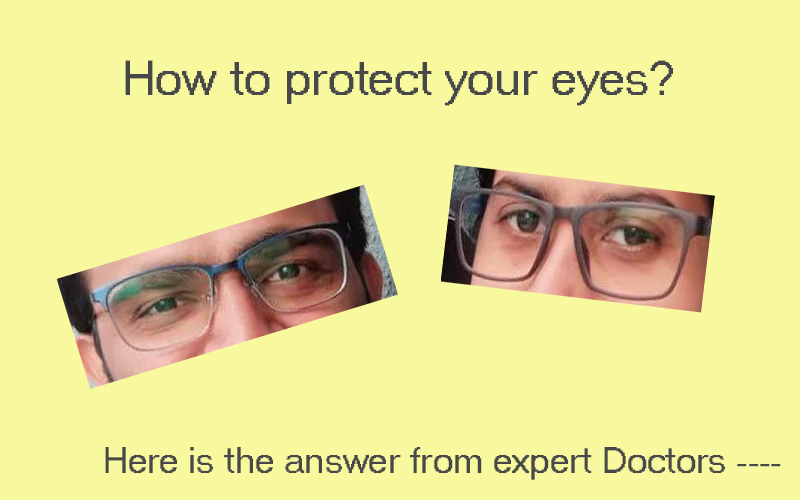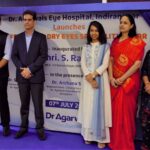Protect your eyes from computer screen. Blink more often and Observe 20-20-20. We need to protect our eyesight while we are adapting to the new normal, infact it is essential. Increase personal social interaction and sunlight exposure outdoor to keep conditions like myopia under control.
The COVID pandemic induced lockdown has seen an unprecedented increase in screen-time for adults working from home, to students, children and toddlers who have to attend schools/playgroups or interact with friends via video calls. This is in addition to screen-time dedicated to entertainment. Consequently, there has been an increase in the number of patients reporting symptoms to their eye doctors. Experts answers to the question – How to Protect your eyes from computer screen;
Dr.Hasanain Shikari, Ophthalmologist and Retina Specialist attached to Saifee Hospital, Mumbai saw an increase in telephone consultations with patients reporting, redness, dryness, itching and strain in their eyes. “There was also an increase in patients complaining of styes as a result of eye strain or missed spectacle prescriptions during the lockdown and I received at least 2 calls per week with these complaints” he said.


It is usually recommended that children abstain from using electronic screens, rather increase personal social interaction and sunlight exposure outdoor to keep conditions like myopia under control. Senior ophthalmologist and Cornea specialist, Dr.Quresh Maskati says, “My grand-daughter who is now about 1 year old begins online playschool to be able to interact with other children safely, after much protesting on my part”. He goes on to say that spending excessive time in front of screens, reduced exposure to sunlight due to restrictions on outdoor play during the lockdown increases the risk of a child developing myopia or short-sightedness. Many parents are also complaining of strain symptoms in children ranging from redness, itching and irritation in the eyes.
What should be done to take care of your eyes as a result of unavoidable exposure to screen time in groups who need to maintain work schedules, online classes and learning? Dr.Lowai Dawoodi, Ophthalmologist at Saifee Hospital, Mumbai says, “Workspace ergonomics are very important. Make sure you are working in a room with adequate brightness, maintain your screen at auto brightness to adjust according to ambient light settings – an overly bright screen in comparison to the rest of the room would put extra strain on the eyes”. On the proliferation of blue-light blocking lenses, all three specialists we spoke to concur that using them is not harmful, but with most modern computers and screens, there does not appear to be any need to wear plain blue blocking lenses in the absence of a spectacle prescription.
I advise my patients 3 rules to protect their eyes against digital eye strain –
- Rule #1 Blink more often – while staring at the screen, our blink rate decreases and with increased exposure to air-conditioning or wind drafts can dry the eye surface, blinking helps moisturize the surface.
- Rule #2 Observe 20-20-20: every 20 minutes, take a 20 second break and look 20 feet away – this helps relax the eyes and can be achieved without moving away from your workspace by looking out a window or focusing on any object at a distance.
- Rule #3 use artificial tears ever so often to keep eyes moist.
Says Dr, Shikari and Drs.Dawoodi and Maskati concur.
Dr.Lowai also emphasizes that non-essential screen-time exposure should be reduced and that children during online schooling do so at a larger screen at adequate distances rather than on small mobile screens as a method of preventing strain.
As a result of this pandemic, the workspace culture has changed across the age spectrum, for better or worse, only time will tell. But the need to protect our eyesight while we are adapting to the new normal is essential. Per Dr.Maskati, putting off eye checks and essential surgeries/procedures is not required and all safety precautions are followed across clinics. Additionally Dr.Shikari says, “Many patients have put off essential retinal treatments due to fear of venturing out or difficulty in access to their physicians/travel restrictions and as a result suffering from irreversible damage to their vision and presenting with at times untreatable complications”











